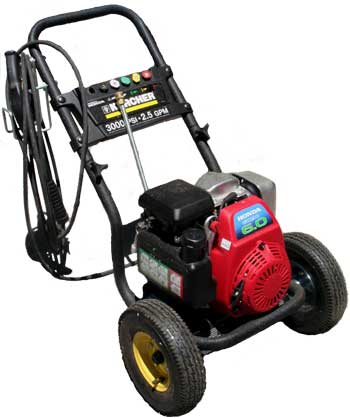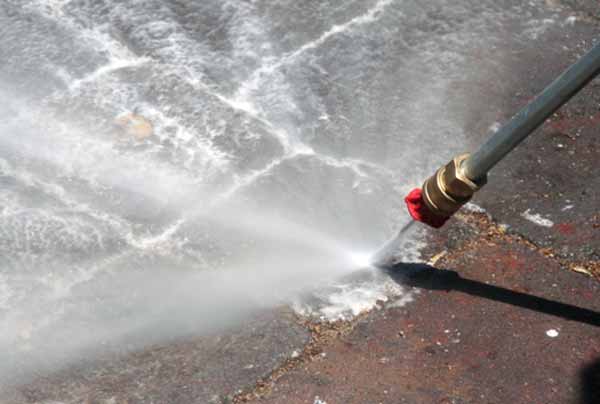How To Select a Pressure Washer
High-pressure sprayers or pressure washers are a useful tool for cleaning surfaces of dirt, mold, grime, stains and even to strip loose paint and other adhered materials. Most pressure washers work by connecting a garden hose to them. The pressure washer increases water pressure to a high PSI (Pounds per Square Inch) and propels a small, focused stream through a nozzle with enough force to break up dirt and harder materials and wash them away. The nozzle is mounted in a hand-held, trigger controlled wand allowing the operator to start and stop the flow of water. Some models allow the addition of detergents or other chemicals to be mixed into the stream to further aid in the cleaning process. Some models also can heat the water as another way to get a surface clean.

Choosing a High-Pressure Washer
Consumer pressure washers are available in electric and gasoline powered models. Gas powered models generally produce higher PSI levels than electric models. Electric models are best suited for cleaning small areas. Using an electric model to clean a large driveway or deck will take much more time than with a gasoline pressure washer. Also, because they don't produce as much pressure, they may not be able to clean all stains and all surfaces. If you will be cleaning things like a B-B-Q grill, small walkway, isolated stains, washing a car (some models) then an electric model may be ideal. If you will be cleaning driveways, decks, siding, removing difficult stains, stripping loose paint, then a gasoline model will be a better choice.
|
Pros |
Cons | |
| Electric |
|
|
| Gasoline |
|
|
The higher the pressure, the more versatile the tool. Over the life of the pressure washer, you may encounter a wide variety of stains and materials to clean. Having enough pressure to remove rust, motor oil, tar and similar stains is essential. If the unit is underpowered, you may not be able to remove a stain or at the very least, you will spend more time cleaning. Of course, if routine cleaning is likely not to require very high-pressure, you can always rent a unit if the need arises.

Models may offer a variety of interchangeable nozzles for different applications. For instance the model shown in this article comes with five nozzles. More nozzles make a unit more versatile. A wide-angle lower pressure nozzle is suitable for washing a car, while the narrowest-angle nozzle can literally strip bark from a tree. Incidentally, pressure washers can be very dangerous. Their high pressure is enough to cut quickly through skin and muscle.
Prices vary widely. Electric models start as low around $100 and range to about $300. Gasoline powered pressure washers start around $250 and range to around $600 for consumer models and can go up to about $2,000 for a professional model.





